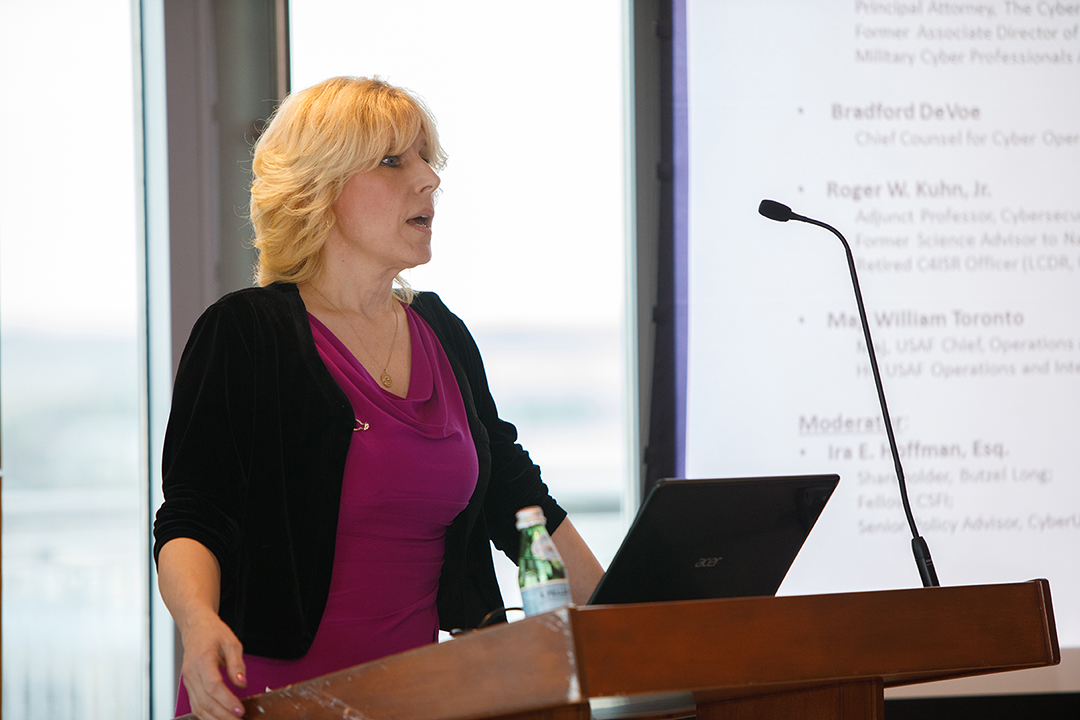A panel of top ranking defense officials, lawyers and policy experts gathered on the evening of May 3 at GW’s Elliott School of International Relations to discuss the application of the law of war to cyber operations in times of peace and times of war.
The forum, hosted by The Cyber Security Forum Initiative (CSFI) and George Washington University's Cybersecurity Strategy and Information Management master's degree program, provided an opportunity for organizations and individual attendees to learn more about law and policy for cyberspace operations.
Panelists explored existing cyber laws, their interpretations and operational restrictions. Discussions also included the legal processes of projecting power in the domain of cyberspace and what capabilities require legal review relating to Defensive Cyberspace Operations (DCO) -- both Internal Defense Measure (IDM) and Response Actions (RA).
The panelists included:
- Arnold Abraham, Esq.
Former Associate Director of Intelligence for United States Cyber Command; Military Cyber Professionals Association (MCPA) Advisory Board Member; Institute for Defense Analyses; The CyberLaw Group. - Ira E. Hoffman, Esq.
Fellow, CSFI; Senior Policy Advisor, CyberUSA. - Roger W. Kuhn, Jr.
Former Science Advisor, Naval Network Warfare Command; Former Science Advisor, Fleet Cyber Command/Commander, 10th Fleet; Former Science Advisor, Navy Expeditionary Combat Command Office of Naval Research (ONR). He also teaches for GW’s Cybersecurity and Information Management master’s degree program. - Bradford DeVoe, Maj, USAF
Staff Judge Advocate, 175th Cyber Operations Group, Maryland ANG - William D. Toronto, Maj, USAF,
Chief, Operations and Cyber Division
HQ USAF Operations and International Law Directorate (AF/JAO)
GW faculty member Roger W. Kuhn, Jr. (left) speaks on event panel about law of war to cyber operations (GW/William Atkins).
The audience of more than fifty attendees had a lively discussion with topics moving from a hypothetical scenario in which an oil refinery was attacked by a foreign state actor to the concrete issues of today. Panelists addressed questions ranging from private network vulnerability scans by government agencies to what constitutes an act of war and progress on the legal framework for cyber warfare.
This timely topic, potentially affecting all of us is no longer a question for Congress and policy makers alone.



